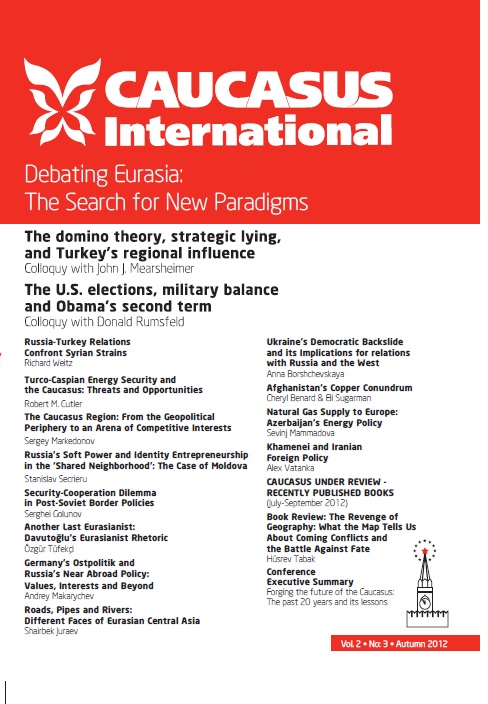Germany’s Ostpolitik and Russia’s Near Abroad Policy: Values, Interests and Beyond
The paper analyzes the Ostpolitik of Germany and the near abroad policy of Russia, both of which are the key countries in shaping developments within the EU–Russia common neighborhood. The author argues that a number of German initiatives have acted as a spur for projects aimed at engaging Russia in pan-European affairs, citing the example of former Russian President Dmitry Medvedev’s plea for a European Security Treaty, following which Germany proposed the Meseberg Initiative, which created a Russian – EU security dialogue towards the joint resolution of the conflict in Transniestria. The author then draws a comparison between the policies of the two countries, concluding that the German foreign policy machinery – unlike the Russian - contains a number of semi-official institutions that are widely used for formulating policy changes and delivering new messages to other countries. Berlin has undertaken the rather serious challenge posed by the Russian-led projects aimed at reintegrating the largest post-Soviet states, and appears to be willing to act more pro-actively and take maximum advantage of the key Russian weakness, namely the complete lack of a normative appeal in its policies toward its neighbors.
Latest news
- 03/17/2020 Call for Submission: “Non-Alignment Movement and Its Perspective in International Affairs”. Deadline: 1 July 2020 2623 views
Popular articles
- 02/24/2020 The Role of Irredentism in Russia’s Foreign Policy 2535 views
- 02/24/2020 Construction of sub-national identity vis-à-vis parent state: Gagauz case in Moldova 2216 views
- 02/24/2020 The Conflict in Ukraine - The Geopolitics of Separatism and Divergent Identities (Commentary) 2071 views
- 02/24/2020 The Role of the Soviet Past in Contemporary Georgia 2044 views





